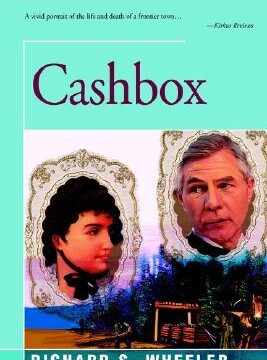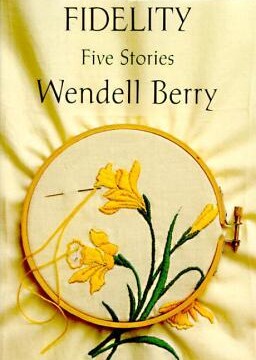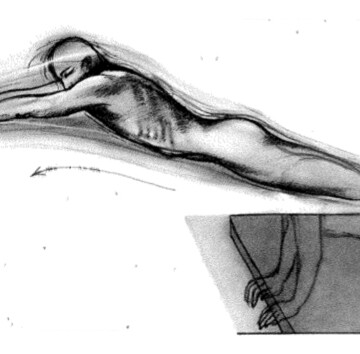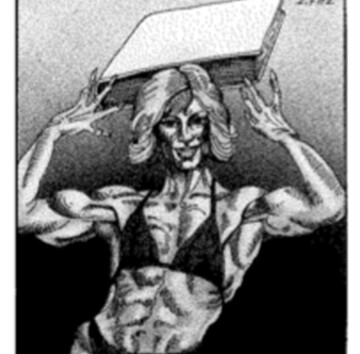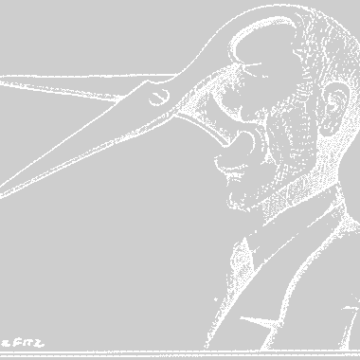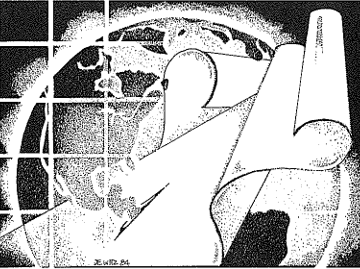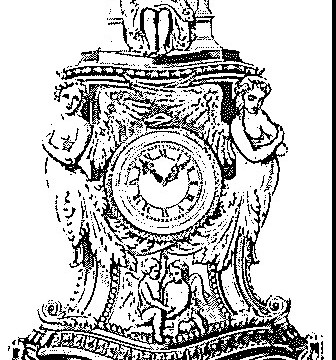[This review first appeared in the December 1987 issue of Chronicles.] “A perfect democracy is… therefore the most shameless thing in the world.” —Edmund Burke More than 50 years after his death, Irving Babbitt continues to evoke a sympathetic response from minds and temperaments attuned to the ethical worldview fostered by classical and Christian thought....
Author: Stephen L. Tanner (Stephen L. Tanner)
Light Literature
One of the casualties of the current culture wars is the Western. No other genre, it seems, is so politically incorrect. The Western is accused of racism, sexism, and imperialism—three strikes and you’re out. These charges receive sophisticated expression in Jane Tompkins’ West of Everything, published under the prestigious imprint of Oxford University Press. According...
The Placed Person
For about 30 years Wendell Berry has been writing fiction, poetry, and essays motivated by what he identifies as “a desire to make myself responsibly at home in this world and in my native and chosen place.” I think the “world” he has in mind is that of mortality in general and of our chaotic...
Religion and Critical Theory
In his 1935 essay “Religion and Literature,” T.S. Eliot argued that modern literature had become progressively secularized. In response he proposed that “literary criticism should be complemented by criticism from a definite ethical and theological standpoint.” Eliot introduced his arguments with the famous statement, “The ‘greatness’ of literature cannot be determined solely by literary standards;...
Our Postmodern Age
Eliseo Vivas once said, “I would not for a minute pretend solidarity with men who do not realize that one of the essential marks of decency today is to be ashamed of being a man of the twentieth century.” He had no desire to turn the clock back; he was simply advocating that rather than...
Reason and the Ethical Imagination
“A perfect democracy is . . . the most shameless thing in the world.” —Edmund Burke More than 50 years after his death, Irving Babbitt continues to evoke a sympathetic response horn minds and temperaments attuned to the ethical world view fostered by classical and Christian thought. Within the last decade, much of his writing...
Sums of Disenchantment
Zulfikar Chose was born in Pakistan, grew up in British India, emigrated to England in 1952, and since 1969 has taught in the English department of the University of Texas. He is married to a Brazilian and has enough knowledge of South America to write novels set there. This is his 10th novel. He has...
Boomtown Philosophers
Why is it that America has noticed the “Boom” in Latin American fiction but has ignored Latin American philosophy? One obvious reason lies in the unavailability of translated texts. While novelists have energetically and strategically combined efforts to publish translations of their works in the United States, nothing of the sort has happened in Latin...
Babbitt in the Eighties
Six of this book’s 10 essays were presented at a conference commemorating the 50th anniversary of Irving Babbitt’s death. Held in Washington, DC, at The Catholic University of America in November 1983, the conference brought together scholars of various disciplines to address the general subject of “Irving Babbitt: Fifty Years Later.” Although some people might...
The Great Spirit of Form
Malcolm Bradbury describes Peter Handke as “unmistakably one of the best writers we have in that selfdiscovering tendency in contemporary writing we have chosen to call postmodernism.” And, true enough, Handke is eminently skillful at what he sets out to do. Poet and playwright as well as novelist, he is concerned above all with exploring...
Postrevolution Blues
The situation is familiar to any student of socialist revolutions: The revolution is over, and the political apparatus has become authoritarian and alienated from its popular base. The lives of real people become less important than the economic programs and ideological causes of a growing bureaucracy. Then come suspicion, repression, overzealous police vigilance, persecution of...
Decent Folk From Georgia
“Livin’ is like pourin’ water out of a tumbler into a dang Coca-Cola bottle. If’n you skeered you cain’t do it, you cain’t. If’n you say to yoreself, ‘By dang, I can do it!’ then, by dang, you won’t slosh a drop.” This sample of dialogue conveys something of the tone, language, and philosophy of...
The Maze of Metaphor
Jacques Derrida has in recent years made himself one of the most influential figures in literary criticism on American college campuses. The movement he has inspired, alternately known as “deconstruction” or “poststructuralism,” asserts that all language is metaphorical and that there is nothing outside the literary text. Following Derrida’s lead, Joseph G. Kronick challenges the...
Forget This Alamo
This is the kind of novel that inspires slick reviewers and writers of publisher’s blurbs to new outrages in inflated but tacky description: “lusty,” “brawling,” “pulsing with ambition,” “passion and greed,” “an epic saga.” The story begins in Mexico in 1927, with flashbacks going back to the turn of the century, and ends in 1982....
Tales of Apocalypse
“Therefore nowe is it tyme to me To make endyng of mannes folie.” —The Last Judgement, York Cycle Plays Nothing seems very certain nowadays for writers of fiction. Traditional religious and moral values have been under attack for so long that many writers uncritically assume they are thoroughly discredited. Even much of the certainty of science...
Revolution and Its Discontents
Winner of France’s Renaudot Prize, this autobiographical Bildungsroman is a first-person narrative of a young man from a Belgian village who begins as a seminarian and ends as a disillusioned anarchist. Under the direction of his widowed mother and the village priest, he enters the seminary in Louvain, where his study of the changing values...
Babbitt and More in the Eighties
“Every artist is a moralist, though he need not preach.” —George Santayana Accepting the Nobel Prize for Literature on December 12, 1930, Sinclair Lewis used the occasion to attack academic traditionalists, who, he said, “like their literature clear and cold and pure and very dead.” And among that group he singled out the New Humanists,...
So Long, St. George
This collection, announces Franz Rottensteiner in his introduction, gives us none of the traditional “high” fantasy of heroic quests in imaginary lands, filled with magic and sorcery and pitting good against evil. Such fantasy, Rottensteiner argues, can provide little insight into modern society or the human mind because it is rooted in past worlds divorced...
Prime-Time Whitman?
The title alludes to Whitman’s Democratic Vistas, and David Marc, a professor of American Civilization at Brown University, begins, ends, and sprinkles the middle of this study with quotations from Whitman. The preface announces “a Whitmanian faith in the ability of the individual consciousness to mingle with a collective cultural conscious ness.” And part of...
Life by Teaspoonsful
Peter Handke: The Weight of the World; Translated by Ralph Man heim; Farrar, Straus & Giroux; New York. This combination of writer’s notebook and personal diary by the German novelist, playwright, poet, film writer and director Peter Handke is 243 pages of random perceptions, most of them just a few lines long. They were written between November 1975 and...
In Focus
The Light From the East by Lee Congdon Martin Jay: Marxism and Totality: The Adventures of a Concept From Lukacs to Habermas; University of California Press; Berkeley, CA. Like the exponents of Critical Theory, the subjects of his first book, Martin Jay considers himself to be an “extraterritorial” outsider. Professor of history at...
Webs of Culture
Clifford Geertz: Local Knowledge: Further Essays in Interpretive Anthropology; Basic Books; New York Paul Elmer More once noted the presence of demons in human society: “The Malec of violence, the Beelzebub of treachery, the Belial of lying flatteries, the Mammon of gold, the Mephistopheles of skepticism, and others of the Stygian Council escaped through the...
Reality by the Tail
Luisa Valenzuela: The Lizard’s Tail; Farrar, Straus & Giroux; New York. The Lizard’s Tail reflects two important tendencies in Latin American fiction. One is a sense of obligation to make social and political commentary. Few Latin American writers escape the pressures to be active participants in the solution of economic, political, and cultural problems. As...
Correspondence
Letter from Brazil: The Consuming Crisis Returning to Brazil for five months as a Senior Fulbright Lecturer after an absence of seven years, I expected to see considerable change. Things happen rapidly in such a developing nation. And indeed Brazil today presents striking contrasts to the Brazil I knew for two years in the mid-1970’s....
Avoiding Questions
The American Novel and the Way We Live Now is a gem, one of those concise little books that coruscate with gleaming wisdom and flashes of insight. As the title suggests, it is a study of certain features of the contemporary American novel, a commentary on prominent aspects of contemporary life, and an exposition of the connection between the two. This...
